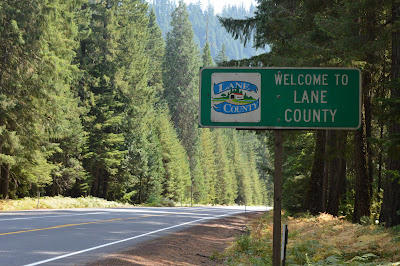Continue to Stand in the Gap: Polk County
Study to shew thyself approved unto God, a
workman that needeth not to be ashamed, rightly dividing the word of truth. II
Timothy 2:15
Western Oregon University
Polk County was created in 1845, partitioned off from
Yamhill County and named after the 11th President of the United
States, James K. Polk. The county seat is Dallas, named after Polk’s vice
president.
The Board of Commissioners are Craig Pope, Lyle
Mordhorst, and Jeremy Gordon.
The County Sheriff is Mark Garton.
Towns in
addition to Dallas, the county seat, include Grand Ronde, Rickreall, Eola, Fort
Hill, Monmouth, Independence, Falls City, and some of Salem and Willamina.
You can find more information on Polk County here,
here, and here.
 |
| Polk County, Oregon |
The Burnetts seem to have been a high-achieving
family. The famous 1843 wagon train, the beginning of the Great Migration to
Oregon, was led by Glen’s brother, Peter Burnett. Since his family were members
of the Reformed movement, Christian church pioneers had high hopes for Peter to
establish new churches in Oregon. However, upon arriving in Oregon, something
unexpected happened. Peter Burnett converted to the Catholic Church.
Peter did not stay in Oregon long, although he did
take a position with early Oregon’s provisional government before the gold rush
of 1849 drew him to California. There he became California’s first governor as
that state was coming into existence. Unfortunately, Peter Burnett’s reputation
is tarnished by his racist and exclusionary views. He pushed for both the
exclusion of slavery in Oregon as well as the exclusion of free blacks. He was
known for promoting policies in California and Oregon to exclude the Chinese as
well, and for laws that resulted in a policy of extermination toward Native
Americans. He was the first governor of California, but also the first to resign,
and that under a cloud of unpopularity.
His brother Glen, however, seems to have gone in
another direction. He came to Oregon with his family two years after his
brother. Once settled on his 640-acre homestead in Polk County, he began a life
of farming and preaching, often walking eight or ten miles to preach in a
schoolhouse, church, log cabin, or the open air. He later estimated that he
preached at more than 150 locations during those (about 15) years and helped establish
various congregations. He and another early pioneer of Polk County, Amos Harvey,
were determined to build the first Christian college in Oregon, and each
donated a portion of their land to found Bethel College, later part of Western
Oregon University. Glen and his family moved to California in 1861 so one of
his sons could attend a Bible college there. The son returned to Oregon, but
Glen spent the final thirty years of his life planting churches in Northern California.
He and his wife are buried in Santa Rosa, California.
The accounts I have seen do not mention Glen Burnett’s
political views, nor his attitude toward slavery or the indigenous population. Did
he share his brother’s views? He seems to have devoted his time and energy to
preaching the gospel, raising his large family (eventually eleven children),
and establishing schools and churches. Oregon’s roots are mixed, good with bad,
sometimes in the same family, or even the same person. Pray we can build on the
planted good and root out the bad.



Comments
Post a Comment